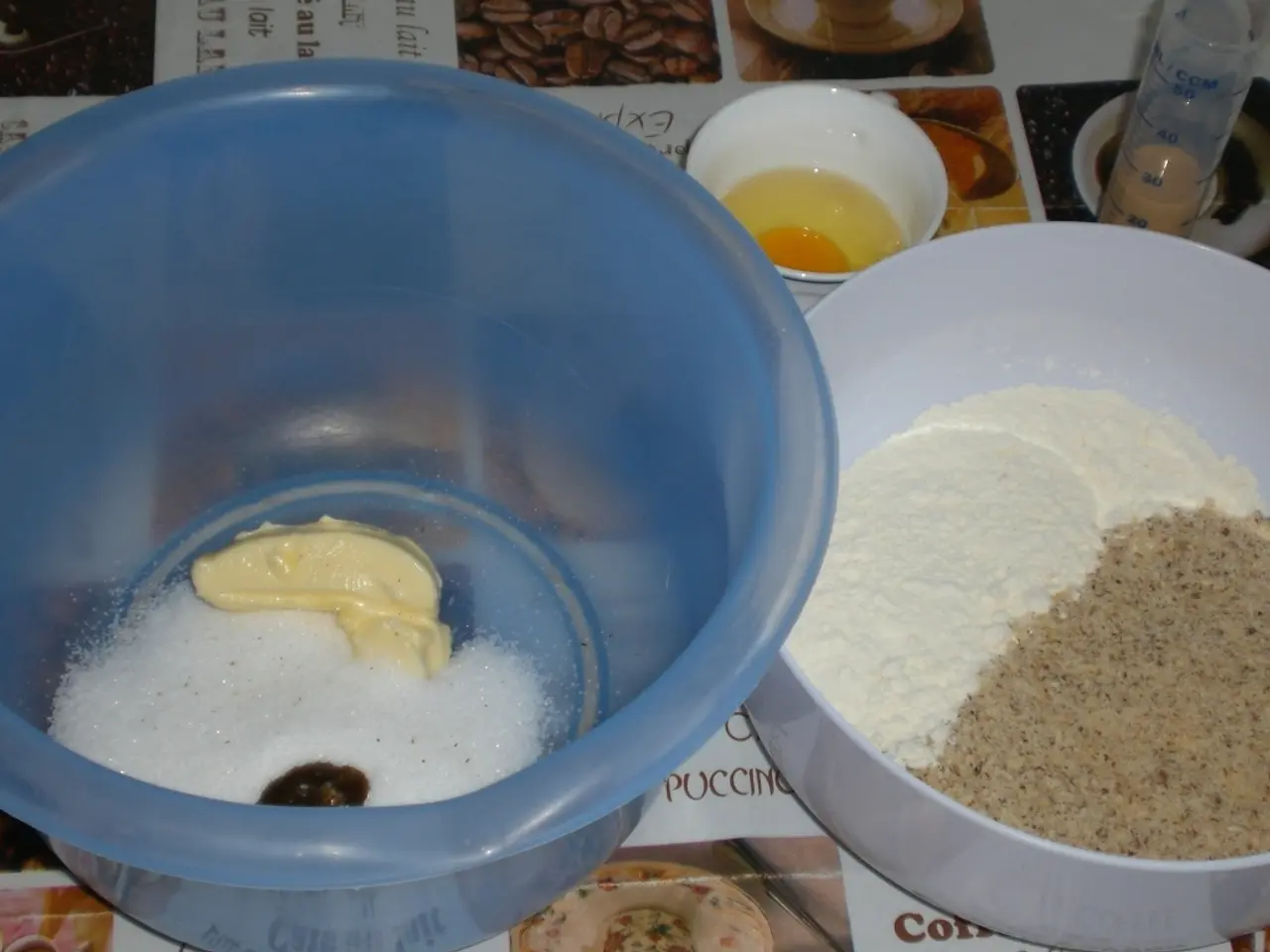Nine nutrient-dense, high-fiber foods to combat and alleviate constipation issues
Constipation, a common problem affecting almost one out of twenty children, is characterised by less frequent bowel movements and difficulty in passing stool, often causing pain and discomfort. While diet and dehydration can contribute to constipation, there are other factors at play.
One such factor is routine changes and stress. Transitions such as starting school, vacations, or unfamiliar environments can disrupt bathroom habits and cause constipation due to stress or discomfort. Lack of physical activity can also slow down digestion and increase the likelihood of constipation.
Another cause is intentional stool withholding, where toddlers may hold in stool to avoid stopping play or because of previous painful bowel movements, especially during potty training. Certain medications, including iron supplements, can also cause or worsen constipation in children.
Several medical conditions can contribute to constipation. For instance, Hirschsprung’s Disease, a congenital condition where nerve cells in the bowel are underdeveloped, impairing stool passage, is often diagnosed in infancy. Spinal cord or brain injuries, such as spina bifida or traumatic brain injuries, disrupt the nerve signals necessary for bowel movement. Hypothyroidism, low thyroid hormone levels, and conditions like celiac disease and Type 1 Diabetes can also impact bowel function and cause constipation.
If constipation persists or is linked to other symptoms, medical evaluation is recommended to identify underlying conditions.
Fortunately, there are several home remedies that can help prevent and treat constipation. Increasing fiber intake, for example, is an effective strategy. Foods rich in fiber, such as apples, prunes, kiwis, and yogurt, can help soften stool and improve bowel movement frequency.
Other simple strategies include keeping children hydrated, encouraging daily exercise and physical activity, and following a consistent routine such as sitting on the toilet seat first thing in the morning. Abdominal massage can also help stimulate a child’s bowel movement and aid in digestion.
It's important to note that every child has different bowel patterns, with some children having bowel movements once a day, while others go once in two to three days. As long as a child is healthy and passes normal stool without any pain or discomfort, having a bowel movement every third day is normal.
However, in the present scenario where kids are consuming more processed and refined foods, constipation is becoming a common occurrence. To avoid this, it's crucial to avoid foods that are high in fat and low in fiber, and instead, focus on incorporating more fiber-rich foods into a child's diet.
In conclusion, understanding the causes and home remedies for constipation in children can help parents manage this common issue and ensure their child's overall health and wellbeing. If constipation persists or is linked to other symptoms, it's essential to seek medical advice to identify any underlying conditions.
- The history of constipation in children reveals it's a common problem, affecting nearly one out of twenty children, characterized by less frequent bowel movements and difficulty in passing stool, often causing pain and discomfort.
- Routine changes, stress, and lack of physical activity can contribute to constipation in children by disrupting bathroom habits, slowing down digestion, and increasing the likelihood of constipation.
- Other factors causing constipation may include intentional stool withholding, certain medications, and various medical conditions, such as Hirschsprung’s Disease, spinal cord or brain injuries, hypothyroidism, celiac disease, Type 1 Diabetes, and others.
- Home remedies for constipation include increasing fiber intake, maintaining hydration, encouraging daily exercise, following a consistent routine, and abdominal massage, which can all help prevent and treat constipation.
- In today's lifestyle, where children often consume more processed and refined foods, constipation is becoming increasingly common, making it essential to avoid high-fat, low-fiber foods and focus on incorporating more fiber-rich foods into a child's diet.
- Understanding causes and home remedies for constipation in children can help parents manage this issue and ensure their child's overall health-and-wellness, but if constipation persists or is linked to other symptoms, seeking medical advice is crucial to identify any underlying medical-conditions or concerns related to mental-health and nutrition.
- In conclusion, fostering a healthy-cooking lifestyle for children, rich in fiber, proper nutrition, exercise, and relaxation, can significantly contribute to healthy growth and development, optimal brain development, and positive digestive-health, promoting overall mental-health and wellness.




